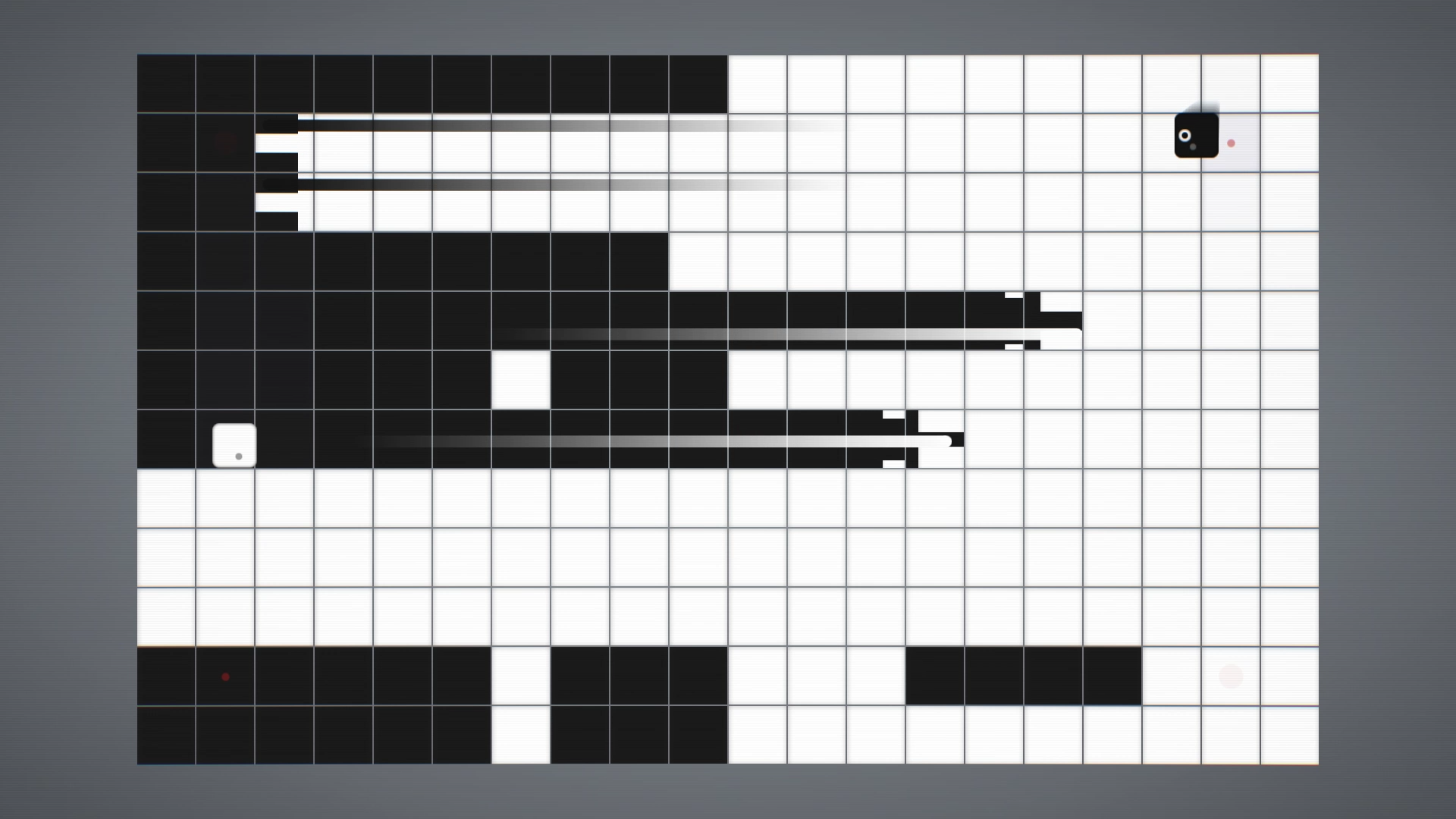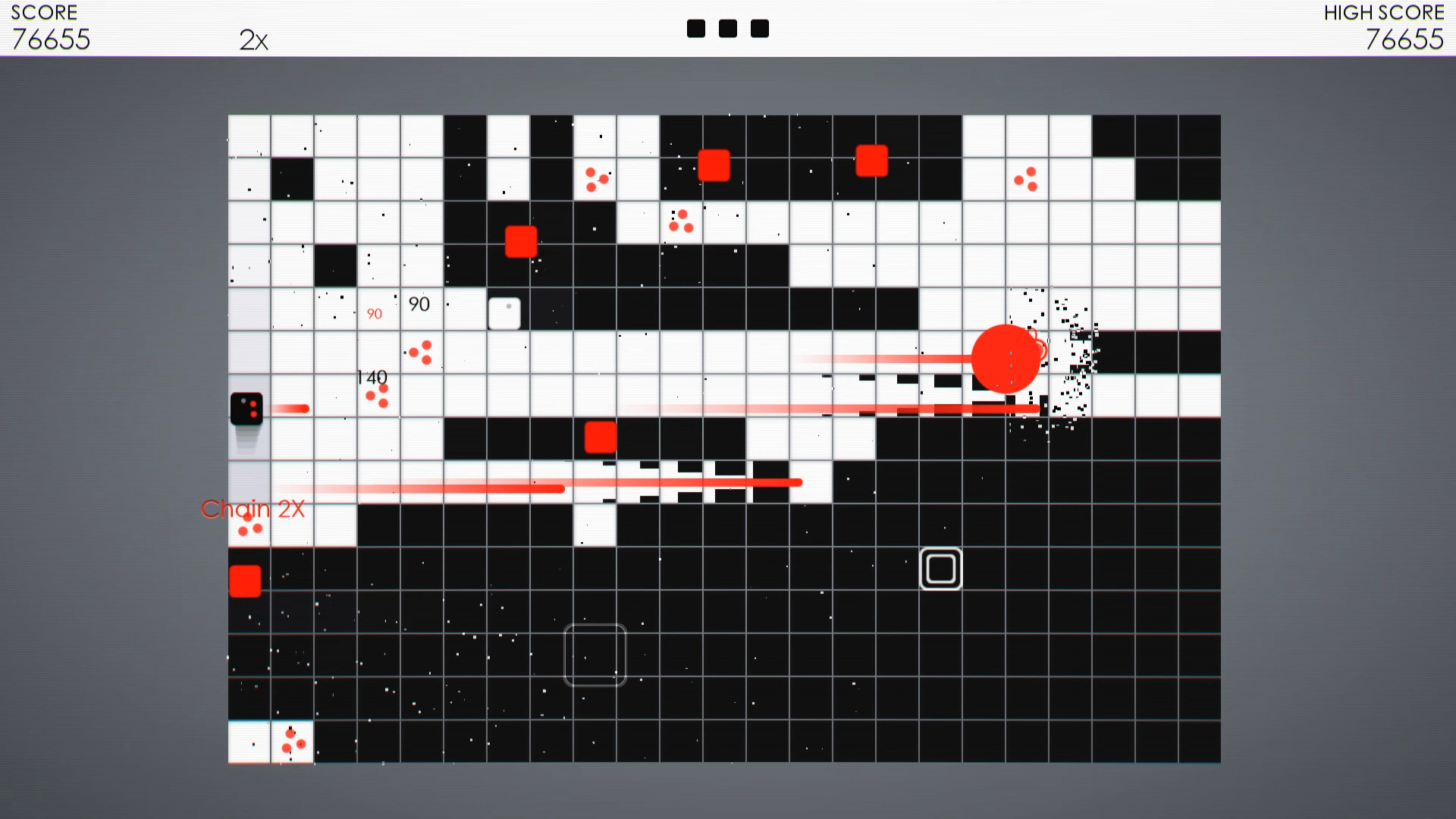Destiny's sandbox engineer quit to make a shooter that looks like a crossword puzzle

Doldrums be damned, here's why I still enjoy Destiny: clearing a path through hostile territory, pushing your luck to the last round in the magazine, then finishing off your foe with one big push feels just as good in hour one as it does in hour 100. That's what Bungie calls its "30 seconds of fun", and that's what lead sandbox engineer Ryan Juckett was responsible for until two weeks ago. He quit to put the finishing touches on own nights-and-weekends project, Inversus, which I got to play with him at PAX East. It does all that muscle-memory-moment type stuff that keeps me coming back to my Guardian… but with squares instead.
Inversus puts one black square and one white square (or two of each in 4-player mode) on a big grid. The black square can move freely on white tiles but bumps into black tiles, and vice versa for the white square. Each square can claim more territory and try to kill the other square by firing color-inverting bullets in one of the four cardinal directions. It's quick, but the minimal, monochromatic visual style makes it easy to follow the action… which isn't to say you won't panic when your starting zone gets shot down to a sliver within seconds.
A bullet will fly all the way to the edge of the map (and past it, if it's one of the maps with Pac-Man style screen wrapping), converting each tile it hits along the way. It's tempting to send out a land-grabbing salvo as soon as the match begins, but your opponent could easily dodge your fire then trap you with one line while you're waiting for your bullets to recharge. Building up a favorable map layout is just as important as being a fast shot, and most matches end with the map looking like a violent crossword puzzle.

There are charged shots that claim extra territory, power-ups that give you shields or faster bullets, and an arcade mode that pits you against hordes of squares with varying abilities (like a parallelograms-only Geometry Wars), but they all build on that basic premise. And it's a strong premise. Playing through a couple matches against Juckett, I got the same feeling I did as the first time I tried out TowerFall - satisfaction from easily grasping the basics, coupled with an urge to use them in new and unexpected ways.
Initial rush aside, I'm not too worried about shooting squares getting old. Inversus demonstrates its variety and flexibility through rows and rows of multiplayer maps. The fundamentals are still the same, but since fewer variables are at play here than in most competitive multiplayer games, changing just one by cycling the map completely upends previously solid strategies. It's sort of like you're playing Othello, but then you move all the pieces over to a Chinese checkers board, then an original Mario Bros. stage.
Inversus will support both local and online multiplayer with matchmaking, so you should have plenty of opportunities to go tile-flipping even if you don't have any gaming rivals on hand. Juckett hopes to get it out on PS4 and Steam by early autumn.
Weekly digests, tales from the communities you love, and more
I got a BA in journalism from Central Michigan University - though the best education I received there was from CM Life, its student-run newspaper. Long before that, I started pursuing my degree in video games by bugging my older brother to let me play Zelda on the Super Nintendo. I've previously been a news intern for GameSpot, a news writer for CVG, and now I'm a staff writer here at GamesRadar.



